当前位置:
X-MOL 学术
›
Lancet Infect Dis
›
论文详情
Our official English website, www.x-mol.net, welcomes your feedback! (Note: you will need to create a separate account there.)
An observer-blind, randomised, placebo-controlled, phase 1, single ascending dose study of dengue monoclonal antibody in healthy adults in Australia
The Lancet Infectious Diseases ( IF 36.4 ) Pub Date : 2024-02-23 , DOI: 10.1016/s1473-3099(24)00030-6 Bhagwat Gunale , Nicholas Farinola , Chandrashekhar D Kamat , Cyrus S Poonawalla , Sambhaji S Pisal , Rajeev M Dhere , Claire Miller , Prasad S Kulkarni
The Lancet Infectious Diseases ( IF 36.4 ) Pub Date : 2024-02-23 , DOI: 10.1016/s1473-3099(24)00030-6 Bhagwat Gunale , Nicholas Farinola , Chandrashekhar D Kamat , Cyrus S Poonawalla , Sambhaji S Pisal , Rajeev M Dhere , Claire Miller , Prasad S Kulkarni
Dengue is highly prevalent in Asia and Latin America and has no specific dengue antiviral treatment. A recombinant monoclonal antibody (VIS513) that neutralises all four serotypes of the dengue virus has been developed in India. After confirmation of safety and efficacy in preclinical studies, it was tested in a first-in-human study to assess the safety and pharmacokinetics. This was a partially blind (observer-blind), randomised, placebo-controlled, phase 1, single ascending dose study in Australia. Participants were dengue naive, healthy adults (aged 18–45 years) with no clinically significant disorders or immunosuppressive conditions. Four dose levels of dengue monoclonal antibody (ie, 1 mg/kg, 3 mg/kg, 7 mg/kg, and 12 mg/kg; n=4 for 1 mg/kg and n=10 each for 3 mg/kg, 7 mg/kg, and 12 mg/kg doses) were assessed in a dose-ascending way with a placebo control (n=2 for each dose cohort, total n=6) for each cohort except for 1 mg/kg. Within each cohort, participants were first randomly assigned (1:1) in a sentinel sub-cohort and then randomly assigned (9:1) in an expansion sub-cohort to dengue monoclonal antibody or placebo except for the 1 mg/kg cohort. Participants, investigators, and outcome assessors were masked and treatment administrators were not masked. 40 participants received a single intravenous injection or infusion of either dengue monoclonal antibody or placebo over a period of 3 min to 2 h and were followed up until day 85. The primary outcomes were proportion of participants with adverse events and serious adverse events (SAEs) up to 84 days after dosing whereas the secondary outcomes were to assess the pharmacokinetic profile of dengue monoclonal antibody and to assess the presence of anti-drug antibody (ADA) to dengue monoclonal antibody. All participants were included in the safety analysis and the pharmacokinetic population involved participants receiving dengue monoclonal antibody. This study is registered with , . Between March 22 and Dec 23, 2019, 40 healthy adults were randomly assigned and all completed the study. There were no SAEs reported. None of the placebo recipients (n=6) reported any adverse events. 31 (91%) of 34 participants receiving dengue monoclonal antibody reported 143 adverse events (1 mg/kg: four [100%] of four participants; 3 mg/kg: ten [100%] of ten participants; 7 mg/kg: seven [70%] of ten participants; 12 mg/kg: ten [100%] of ten participants). Of these 143 adverse events, 80 were treatment-related adverse events in 28 (82%) of 34 participants. Headache (16 [47%] of 34), infusion reaction (11 [32%] of 34), lymphopenia (seven [21%] of 34), fatigue (five [15%] of 34), and pyrexia (four [12%] of 34) were the most common reactions. Infusion reactions were reduced in the 7 mg/kg (two [20%] of ten participants) and 12 mg/kg (three [30%] of ten) cohorts with paracetamol premedication compared with the 3 mg/kg cohort (five [50%] of ten). The majority of adverse events were grade 1 or grade 2 in severity, and resolved completely. Median maximum serum concentrations ranged from 28 μg/mL (1 mg/kg) to 525 μg/mL (12 mg/kg). The median elimination half-life ranged from 775 h (1 mg/kg) to 878 h (12 mg/kg). No ADA against dengue monoclonal antibody was detected. Dengue monoclonal antibody was safe and well tolerated. It showed a dose-proportionate increase in pharmacokinetic exposure. These data support further evaluation of dengue monoclonal antibody in patients with dengue for safety and efficacy. Serum Institute of India.
中文翻译:

在澳大利亚健康成年人中进行的一项观察者盲法、随机、安慰剂对照、1 期、单次剂量递增的登革热单克隆抗体研究
登革热在亚洲和拉丁美洲非常流行,并且没有特定的登革热抗病毒治疗方法。印度已开发出一种重组单克隆抗体(VIS513),可以中和登革热病毒的所有四种血清型。在临床前研究中确认安全性和有效性后,在首次人体研究中进行了测试,以评估安全性和药代动力学。这是在澳大利亚进行的一项部分盲(观察者盲)、随机、安慰剂对照、1 期单次剂量递增研究。参与者是未患过登革热的健康成年人(18-45 岁),没有临床上显着的疾病或免疫抑制状况。登革热单克隆抗体的四个剂量水平(即,1mg/kg、3mg/kg、7mg/kg和12mg/kg;对于1mg/kgn=4,对于3mg/kg各n=10,除 1 mg/kg 剂量外,每个组均以安慰剂对照(每个剂量组 n=2,总 n=6)以剂量递增的方式评估 7 mg/kg 和 12 mg/kg 剂量)。在每个队列中,参与者首先被随机分配 (1:1) 到前哨子队列中,然后被随机分配 (9:1) 到扩展子队列中,接受登革热单克隆抗体或安慰剂(1 mg/kg 队列除外)。参与者、研究人员和结果评估人员均被蒙蔽,而治疗管理者则未被蒙蔽。 40 名参与者在 3 分钟至 2 小时内接受单次静脉注射或输注登革热单克隆抗体或安慰剂,并随访至第 85 天。主要结局是出现不良事件和严重不良事件 (SAE) 的参与者比例给药后长达 84 天,而次要结果是评估登革热单克隆抗体的药代动力学特征并评估登革热单克隆抗体的抗药物抗体 (ADA) 的存在。 所有参与者均纳入安全性分析,药代动力学人群涉及接受登革热单克隆抗体的参与者。这项研究已在 注册。 2019年3月22日至12月23日期间,40名健康成年人被随机分配并全部完成了研究。没有报告 SAE。安慰剂接受者 (n=6) 均未报告任何不良事件。接受登革热单克隆抗体的 34 名参与者中,有 31 名 (91%) 报告了 143 项不良事件(1 mg/kg:四名参与者中的四名 [100%];3 mg/kg:十名参与者中的十名 [100%];7 mg/kg: 10 名参与者中的 7 名 [70%];12 毫克/公斤:10 名参与者中的 10 名 [100%]。在这 143 起不良事件中,34 名参与者中有 28 名(82%)发生了 80 起与治疗相关的不良事件。头痛(34 人中的 16 人 [47%])、输液反应(34 人中的 11 人 [32%])、淋巴细胞减少症(34 人中的 7 人 [21%])、疲劳(34 人中的 5 人 [15%])和发热(34 人中的 4 人 [15%]) 12%] of 34) 是最常见的反应。与 3 mg/kg 队列(五名 [50] %] 经常)。大多数不良事件的严重程度为 1 级或 2 级,并且已完全解决。中位最大血清浓度范围为 28 μg/mL (1 mg/kg) 至 525 μg/mL (12 mg/kg)。中位消除半衰期范围为 775 小时 (1 mg/kg) 至 878 小时 (12 mg/kg)。未检测到针对登革热单克隆抗体的 ADA。登革热单克隆抗体安全且耐受性良好。它显示出药代动力学暴露与剂量成比例的增加。这些数据支持进一步评估登革热单克隆抗体在登革热患者中的安全性和有效性。印度血清研究所。
更新日期:2024-02-23
中文翻译:

在澳大利亚健康成年人中进行的一项观察者盲法、随机、安慰剂对照、1 期、单次剂量递增的登革热单克隆抗体研究
登革热在亚洲和拉丁美洲非常流行,并且没有特定的登革热抗病毒治疗方法。印度已开发出一种重组单克隆抗体(VIS513),可以中和登革热病毒的所有四种血清型。在临床前研究中确认安全性和有效性后,在首次人体研究中进行了测试,以评估安全性和药代动力学。这是在澳大利亚进行的一项部分盲(观察者盲)、随机、安慰剂对照、1 期单次剂量递增研究。参与者是未患过登革热的健康成年人(18-45 岁),没有临床上显着的疾病或免疫抑制状况。登革热单克隆抗体的四个剂量水平(即,1mg/kg、3mg/kg、7mg/kg和12mg/kg;对于1mg/kgn=4,对于3mg/kg各n=10,除 1 mg/kg 剂量外,每个组均以安慰剂对照(每个剂量组 n=2,总 n=6)以剂量递增的方式评估 7 mg/kg 和 12 mg/kg 剂量)。在每个队列中,参与者首先被随机分配 (1:1) 到前哨子队列中,然后被随机分配 (9:1) 到扩展子队列中,接受登革热单克隆抗体或安慰剂(1 mg/kg 队列除外)。参与者、研究人员和结果评估人员均被蒙蔽,而治疗管理者则未被蒙蔽。 40 名参与者在 3 分钟至 2 小时内接受单次静脉注射或输注登革热单克隆抗体或安慰剂,并随访至第 85 天。主要结局是出现不良事件和严重不良事件 (SAE) 的参与者比例给药后长达 84 天,而次要结果是评估登革热单克隆抗体的药代动力学特征并评估登革热单克隆抗体的抗药物抗体 (ADA) 的存在。 所有参与者均纳入安全性分析,药代动力学人群涉及接受登革热单克隆抗体的参与者。这项研究已在 注册。 2019年3月22日至12月23日期间,40名健康成年人被随机分配并全部完成了研究。没有报告 SAE。安慰剂接受者 (n=6) 均未报告任何不良事件。接受登革热单克隆抗体的 34 名参与者中,有 31 名 (91%) 报告了 143 项不良事件(1 mg/kg:四名参与者中的四名 [100%];3 mg/kg:十名参与者中的十名 [100%];7 mg/kg: 10 名参与者中的 7 名 [70%];12 毫克/公斤:10 名参与者中的 10 名 [100%]。在这 143 起不良事件中,34 名参与者中有 28 名(82%)发生了 80 起与治疗相关的不良事件。头痛(34 人中的 16 人 [47%])、输液反应(34 人中的 11 人 [32%])、淋巴细胞减少症(34 人中的 7 人 [21%])、疲劳(34 人中的 5 人 [15%])和发热(34 人中的 4 人 [15%]) 12%] of 34) 是最常见的反应。与 3 mg/kg 队列(五名 [50] %] 经常)。大多数不良事件的严重程度为 1 级或 2 级,并且已完全解决。中位最大血清浓度范围为 28 μg/mL (1 mg/kg) 至 525 μg/mL (12 mg/kg)。中位消除半衰期范围为 775 小时 (1 mg/kg) 至 878 小时 (12 mg/kg)。未检测到针对登革热单克隆抗体的 ADA。登革热单克隆抗体安全且耐受性良好。它显示出药代动力学暴露与剂量成比例的增加。这些数据支持进一步评估登革热单克隆抗体在登革热患者中的安全性和有效性。印度血清研究所。
































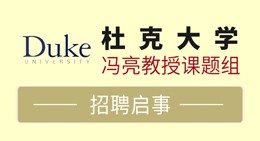

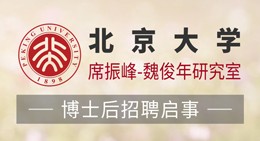
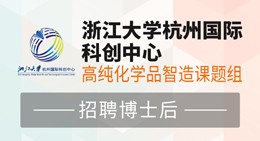



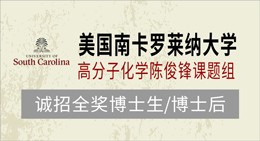
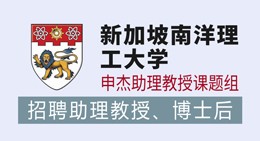



 京公网安备 11010802027423号
京公网安备 11010802027423号